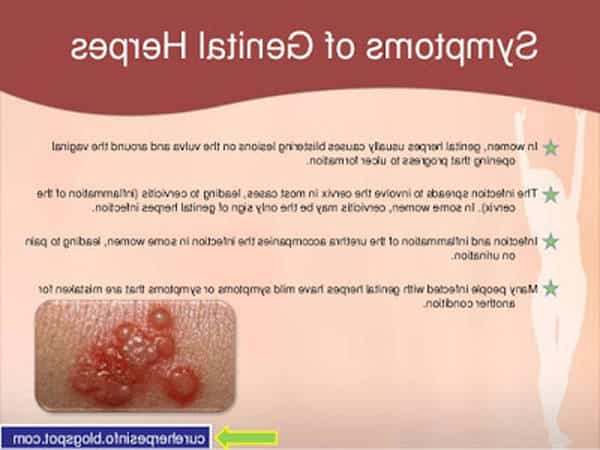How Are Bone Marrow And Peripheral Blood Stem Cell Donation Different
Donating bone marrow is a surgical procedure done under general or regional anesthesia in a hospital. While a donor receives anesthesia, doctors use needles to withdraw liquid marrow from the back of the pelvic bone.
PBSC donation is a non-surgical procedure done in an outpatient clinic. PBSC donors receive daily injections of a drug called filgrastim for five days, to increase the number of blood-forming cells in the bloodstream. Then, through a process called apheresis, a donorâs blood is removed through a needle in one arm and passed through a machine that separates out the blood-forming cells. The remaining blood is returned to the donor through the other arm.
You May Like: How To Get Rid Of Herpes Simplex On Lips
How Do I Go About Donating My Body To The Health Sciences
The donation process is very simple. At any time prior to death a Donor Registration Form may be filled out, signed by the donor themself, witnessed, and returned to one of the Human Gift Registries. A donor card is returned to the donor after processing. After death, the appropriate Human Gift Registry is notified, and a death certificate is obtained by the person responsible for the body. Please see the Donate section of this web site for more information.
Condition #5 Eyesight Issues
According to the standards of physical fitness provided by Armed Forces, there are some eyesight issues that are disqualifying.
Armed Force members are required to maintain certain visual standards with or without visual correction devices such as spectacle lenses. The regulations for eyesight without a visual aid are:
- Soldiers must be able to see at least 20/40 in one eye, and 20/70 in the other eye.
- Or 20/30 in one eye and at least 20/100 in the other eye.
If a spectacle aid for eyesight is required the standards are:
- 20/20 in one eye and 20/400 in the other eye.
Entrance into US Military Academy or ROTC has additional requirements. The distant visual acuity must correct to 20/20 in one eye and 20/40 in the other. Vision below those standards is disqualifying.
Officer Candidate School OCS has standards of 20/20 and 20/100.
There is no standard set for color vision, which is a common concern. Though it will get tested for certain branches of the military , it is not a requirement to qualify.
However, it may restrict you from joining certain specialties of the U.S. Military.
For example, if you wanted to become a Navy SEAL, you must meet specific eyesight requirements.
They include 20/40 vision in your best eye, 20/70 vision in your worst eye, and it must be correctable to 20/25 with no color blindness.
There are several rare types of eyesight issues such as blepharitis, conjunctiva, cornea dystrophy, and iridocyclitis that are disqualifying diseases.
Recommended Reading: Can Amoxicillin Treat Genital Herpes
How Does A Donor’s Family Obtain A Death Certificate
One may obtain a certified copy of a death certificate by contacting West Virginia State Department of Health, Division of Vital Statistics, 1800 Washington St., East, Charleston, WV 25305 or call 558-2931. Also, certified copies of death certificates may be obtained from the county court house in the county where the death occurred.
Pros And Cons Of Organ Donation

When you’re considering becoming a living organ donor, think very carefully about these pros and cons:
Pros. Probably the greatest benefit of organ donation is knowing that you’re saving a life. That life might be your partner, child, parent, brother or sister, a close friend, or even a stranger.
Cons. Organ donation is major surgery. All surgery comes with risks such as bleeding, infection, blood clots, allergic reactions, or damage to nearby organs and tissues.
Although you will have anesthesia during the surgery as a living donor, you can have pain while you recover. Pain and discomfort will vary depending on the type of surgery. And you may have visible, lasting scars from surgery.
It will take some time for your body to recover from surgery. You might have to miss work until you’re fully healed.
Read Also: How To Heal Herpes Outbreak Quickly
Hereditary Diseases Or Genetic Disorders
Individuals who have fallen ill due to the following diseases are not eligible:
- Creutzfeldt-Jakob Disease , Variant CJD , or any Transmissible Spongiform Encephalopathies If you have been diagnosed or if any relative of yours has been diagnosed with CJD, vCJD, or any TSEs, you cannot donate.
- Hemochromatosis
You cant donate plasma if you:
- have had most types of cancer
- have some heart conditions
- have received blood, platelets, plasma or any other blood products after 1 January 1980
- have tested positive for HIV or HTLV
- have had an organ transplant
- are a hepatitis B carrier
- are a hepatitis C carrier
- have injected non-prescribed drugs including body-building and injectable tanning agents
There are other medical conditions that may mean you cant donate. Please call us on 0300 123 23 23 to check if you can donate.
Can You Donate Blood If You Have Herpes
According to the American Red Cross, you can donate blood if you have genital or oral herpes as long as you are otherwise well and have had it for some time. Their donor eligibility guidelines explain that people with HSV are allowed to donate blood unless they have another prohibitive infection, like HIV or hepatitis.
However, according to thisGo Ask Alice column, people having their first herpes outbreak are discouraged from donating, and are asked to wait about a month.
This is because the first time herpes manifests is usually the strongest. There is also a tiny possibility during this period that the virus could enter the bloodstream.
Recommended Reading: Can They Test For Herpes Without An Outbreak
What Happens If I Dont Get Treated
Genital herpes can cause painful genital sores and can be severe in people with suppressed immune systems.
If you touch your sores or the fluids from the sores, you may transfer herpes to another part of your body, such as your eyes. Do not touch the sores or fluids to avoid spreading herpes to another part of your body. If you do touch the sores or fluids, immediately wash your hands thoroughly to help avoid spreading your infection.
If you are pregnant, there can be problems for you and your developing fetus, or newborn baby. See Im pregnant. How could genital herpes affect my baby? above for information about this.
How Do People Get Infected With Herpes
The virus, Herpes Simplex Virus, can be fast-spreading and can be contacted in various ways. Most people get infected by having oral sex with active lesions in their mouth or genitals. So unless you know your partners status regarding herpes, you should really abstain from unprotected sex.
Other ways you could get infected with herpes are:
- Sharing sexx toys
- Sharing sharp objects with an infected person
- Having any oral or genital contact with an infected person
- Mother-to-child. If the woman had active lesions while giving birth, the virus can be passed on to the baby.
Recommended Reading: How To Get Rid Of Herpes Breakout Fast
How Do I Start The Process To See If I Can Donate A Kidney
The National Kidney Foundation is the largest, most comprehensive and longstanding organization dedicated to the awareness, prevention and treatment of kidney disease.
The Better Business Bureau Wise Giving Alliance Charity Seal provides the giving public with an easily recognizable symbol which certifies that the National Kidney Foundation meets the comprehensive standards of America’s most experienced charity evaluator.
© 2019 National Kidney Foundation, Inc., 30 East 33rd Street, New York, NY 10016, 1-800-622-9010. We subscribe to the HONcode principles of the Health on the Net Foundation. Verify here
Who Has Herpes Can Donate Bone Marrow
Yes , bone marrow donation can be done if the donor has herpes. Other diseases considered sexually transmitted such as HPV , Chlamydia and Syphilis can also donate.
In these cases, patients can register as a donor and wait for the appointment to collect and analyze the marrow.
Remembering that the bone marrow is only removed for donation if there is a compatible person in need.
Read Also: How To Manage Herpes 2
Your Good Health: Blood Donations Possible If You Have Herpes Simplex 1 Or 2
Dear Dr. Roach: If a person has been exposed to herpes 1 and 2, can that person be a blood donor? Could a person catch herpes by sitting on a toilet seat that has been used by an infected person? Are scientists working on a cure for herpes?
Anon.
There remains a stigma against people with genital herpes, which is almost always caused by herpes simplex virus type 2.
However, most people with genital herpes will not have major disruptions to their lives provided they take some precautions.
First off, a person with herpes simplex virus type 1 or HSV-2 certainly can donate blood.
Second, being exposed doesnt guarantee infection.
Third, blood testing is not perfect. Fourth, getting any kind of sexually transmitted infection from a toilet seat is very unlikely.
Herpes viruses have a very difficult time getting through intact skin, which is why most exposures come through mucus membranes, especially of the genitals and mouth.
There is a type of herpes in wrestlers, called herpes gladiatorum or mat herpes, and it can be transmitted from person to person through skin-to-skin contact, especially if the skin is raw or chafed.
Once a person has herpes of either variety, there is no cure.
The virus stays in the nerve cells. There is extensive work being done both on preventing transmission and curing existing infections, but herpes viruses are very good at escaping the immune system. This makes herpes difficult to treat.
J.E.
What Are The Types Of Herpes Viruses

Herpes is a group of contagious viruses. All of these viruses cause blisters and sores. Some of the more common herpes viruses include:
- Type 1: HSV-1, or oral herpes, causes cold sores to form on lips, gums, tongue and inside the mouth. It can cause genital herpes in some cases This type usually spreads through saliva when you kiss someone with open herpes sores. You can also get HSV-1 by sharing items like toothbrushes, lipsticks or eating utensils.
- Type 2: HSV-2 causes genital herpes.
- Herpes zoster: This virus causes chickenpox and shingles.
Also Check: What Medication Is Used For Herpes
What Are The Complications Of Genital Herpes
Genital herpes may cause painful genital ulcers that can be severe and persistent in persons with suppressed immune systems, such as HIV-infected persons. 5 Both HSV-1 and HSV-2 can also cause rare but serious complications such as aseptic meningitis . 5 Development of extragenital lesions may occur during the course of infection. 5
Can You Spread Herpes Without An Outbreak
Yes. It is possible for a person to spread herpes without an outbreak. As long as the person has a herpes infection, they can spread it even if an outbreak has never occurred.
Fortunately, many people who have a herpes infection never have an outbreak. If an outbreak does occur, visible symptoms such as sores and blisters will show up in the affected area. These symptoms may become visible about two and a half weeks after exposure.
When a person has an initial outbreak, they may experience symptoms such as painful urination and muscle and joint pain.
Read Also: Is Herpes 1 And 2 The Same
How Is Genital Herpes Spread
If you do not have herpes, you can get infected if you come into contact with the herpes virus in:
- Saliva or genital secretions
- Skin in the oral area if your partner has an oral herpes infection, or skin in the genital area if your partner has a genital herpes infection.
You can get herpes from a sex partner who does not have a visible sore or who may not know he or she is infected. It is also possible to get genital herpes if you receive oral sex from a sex partner who has oral herpes.
You will not get herpes from toilet seats, bedding, or swimming pools, or from touching objects around you such as silverware, soap, or towels. If you have additional questions about how herpes is spread, consider discussing your concerns with a healthcare provider.
Read Also: How To Prevent Future Herpes Outbreaks
What Is The Pbsc Donation Process Like
Donating PBSC involves two steps: receiving injections of filgrastim and making the donation.
Receiving filgrastim injections: To move more blood-forming cells from your bone marrow to your bloodstream, you will receive filgrastim, a drug given by injection each day for five days before the donation.
The first injection will be given at a donor center or medical clinic. You may receive injections on days two, three and four at your place of work, your home, at a donor center or at a medical clinic. On the fifth day, you will receive your final dose of filgrastim, and then donate your blood cells at the donor center or hospital outpatient unit.
Donating the cells: PBSC donation is done through a process called apheresis, which is similar to donating plasma. During apheresis, a needle will be placed into each of your arms. Blood will be removed from a vein in one arm and passed through tubing into a blood cell separator machine.
The machine collects blood-forming cells, platelets and some white blood cells. Plasma and red blood cells are returned to your body through the other arm. All the tubing used in the machine is sterile and is used only once for your donation. If only one donation is done, it may take up to eight hours. If two donations are done on separate days, each collection will take four to six hours.
Read Also: What Are Early Signs Of Herpes
Don’t Miss: How Can You Avoid Herpes
Get A Rapid Std Test And Verify Your Eligibility To Donate Blood And Save Lives
Now that you know the answer to the question about whether you can donate blood if you have herpes, you are probably considering getting tested. AtRapid STD Testing, we keep the process of getting tested for STDs convenient, affordable, and private. You can order at-home tests or get tested at one of our nearby STD testing centers and then check your results online within one to three days.
Contact us at Rapid STD Testing today to order a test panel or find STD testing centers near you.
May I Donate Organs And Tissues For Transplantation
It is possible to be registered both as an organ donor and a whole body donor. However, the Human Gift Registries are allowed to accept whole body donation only and do not accept bodies from which organs have been removed. With few exceptions, organ and tissue donation at death will prevent whole body donation for medical education. We endorse and encourage tissue and organ donation for use in living recipients where possible, but this requires a separate action by donors. Persons who wish to donate organs for transplant purposes should indicate this preference on their driverâs license application and may wish to register with the Pittsburgh Center for Organ Recovery and Education 366-6777 or the Kentucky Organ Affiliates at 525-3456.
Recommended Reading: Can Herpes Outbreak Last For Months
Is Natural Birth Possible If You Have Genital Herpes
Natural birth is possible if the mother is affected with genital herpes, but under certain conditions-
â It is deemed safe for the mother to deliver vaginally while suffering from genital herpes if she does not show any signs of active infection, such as fresh sores, itching, pus secretion etc.
â If the doctor is in the known regarding the infection and if the mother is actively being treated for the symptoms.
What You Should Know Before Donating Blood

Besides saving the lives of others, donating blood can be emotionally and physically beneficial. According to theMental Health Foundation, donating blood can:
- Alleviate stress
- Boost your emotional well-being
- Prevent cardiovascular disease by reducing harmful iron deposits
Also, when you go to donate blood, you get a free health checkup. The checkup will identify whether you are healthy enough to give blood by checking your:
- Hemoglobin levels
Failing the screening could mean that you have a health issue that you were unaware of, and you can seek help before it gets worse.
Donating blood is safe as long as you are a healthy adult. Since the medical personnel use sterile equipment for each donor, you dont have to worry about picking up diseases from other donors. However, depending on your physiology and other factors, you may briefly experience these side effects after giving blood:
- Lightheadedness
- Slight bruising, swelling, or bleeding where the needle entered your arm
- Arm pain, numbness, or tingling
If you experience physical weakness after donating blood, it should pass after a while. You can speed up your recovery by resting with your feet up and drink lots of water, herbal tea, or broth.
Note that most states require you to be over 17 before you can donate whole blood.Some other states permit 16-year-olds to donate as long as they have parental consent. Before donating blood, eat a healthy meal with low-fat content and drink at least 16 ounces of water.
Also Check: Do You Get Tested For Herpes When Pregnant
Who Can Donate Organs And Tissue
People can donate organs when they die or they can donate a kidney or part of their liver while they are still alive . A living donor is usually a relative or close friend of the person who needs the kidney or liver transplant.
To read more about organ or tissue donation or to register as a donor, visit www.donatelife.org.au.
Read Also: Can Herpes Be Treated With Antibiotics